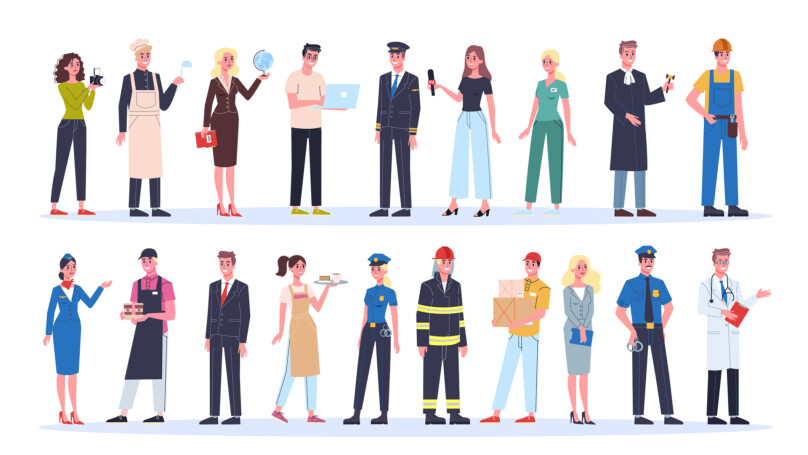It is difficult to decide on a future profession. This is always a difficult stage for the student and the parents. The choice of specialties and directions is huge, besides, today the reality around is changing more quickly than ever, new professions are constantly appearing and already familiar ones are becoming unclaimed.
Experts suggest that by 2030 there will be many times more professions. Moreover, those of them that will be in demand today simply do not exist. Hence the difficulty: how to choose a specialty, even if there is no idea about future professions? But there is still a way to find your direction and not be mistaken in your choice. It consists in tracking trends that already exist and are still only outlined in the surrounding world.
Environmental protection and climate change
One of the global issues on a global scale today and in the future is related to climate change and its impact on the world economy. Governments and businesses around the world are beginning to invest more and more in green technologies and other ways to prevent environmental disaster. Therefore, it is reasonable to expect that there will be many more jobs associated with such tasks. This suggests that graduates of natural science and engineering specialties will be especially in demand. There is even such a direction of training as “Environmental Engineering”, which deals with the problems of the state of the environment.
Environmental issues also make education in Public Health and Economics valuable. Climate change can have negative impacts on human health, therefore combating them is a priority. Education in the fields of biology, geography and sociology provides a deep understanding of environmental issues, thereby preparing students for a wide variety of professions that may appear in this field in the future.
Artificial intelligence and robots

The growing role of technology in all spheres of human everyday life gives rise to the need for qualified engineers. The use of artificial intelligence in mass consumption technologies has already become quite common, but the possibilities of its use are almost endless and not fully mastered. Many universities now offer a degree in Artificial Intelligence. The advantage of this area of study lies in its relevance in different areas: in finance, banking, business. The study of artificial intelligence will open up a lot of new opportunities for the future student. You will need not only developers, but also specialists who understand the device of artificial intelligence, and who can prevent any potential dangers associated with its use.
The same can be said about robotics, a relatively young science. According to experts, much of what a person does today will be performed by robots in the future. Therefore, “Robotics” is a win-win option for everyone who wants to protect their career from the surprises of the future!
Video games and social media
There is a huge amount of data in the digital space. Therefore, learning big data will help you launch an impressive career. Separately, it should be said about social networks and video games. Today social networks are an integral part of everyone’s life, although some 15 years ago they did not even exist. It is difficult to predict how social networks will change in the future, but one thing is for sure – their appearance and rapid development have already changed our world forever. Social media in general and digital media in particular are good choices for those looking to work in an exciting, fast-paced industry.
Studying digital marketing, digital culture and social media has a narrower focus than just marketing and will provide specialized knowledge. The popularity of video games is also growing. Therefore, it is not surprising that their development can now be studied at the university, acquiring the knowledge and skills necessary to work in this exciting industry.
Should you choose a narrow specialty?
Now there are loud discussions about which specialties are better: narrow or wide-profile. On the one hand, the above examples show the demand for specialized knowledge and specialists. On the other hand, as some experts assure, “it’s time to stop correlating the areas of training with specific positions.” University graduates are increasingly working outside their specialty, and this trend is likely to continue.
Be that as it may, obtaining a higher education in any field is becoming more and more necessary for further labor implementation. According to experts, 65% of the professions will need an education above secondary. But even it will not be enough to maintain the status of a highly qualified specialist. In a world where everything changes at breakneck speed, everything taught at university becomes obsolete less than 10 years after graduation. Therefore, training should be publicly available and continuous for continuous development.
